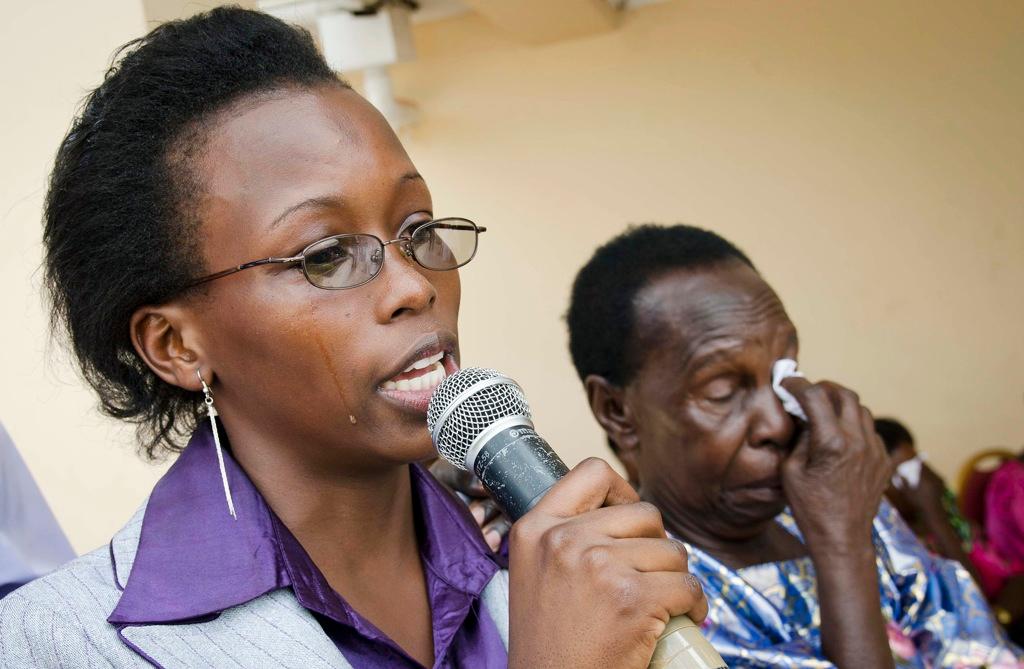Uganda News: Museveni government distances itself from reintroduced anti-gay bill
Sister of gay Ugandan activist David Kato, Eva Mulumba (L) cries as she gives a speech beside Kato’s mother, Nalango Lydia Mulumba (R) during a memorial service for Kato in Kampala, on January 26, 2012. Kato served as a Advocacy and Litigation Officer for sexual minorities in Uganda. Kato was brutally murdered at the age of 46 years his home in Kyetume, Mukono District on January 26, 2011.
BOSTON — The reintroduction of a bill in the Ugandan parliament that would make homosexuality a capital punishment has been internationally condemned and criticized. However, the Ugandan government is doing everything it can to distance itself from the situation.
The government has released a statement that claims the bill is not part of its legislative agenda for the year, Associated Press reported earlier today.
The statement explained that the bill does not have official government backing, and was reintroduced by Member of Parliament David Bahati, who considered to be a "backbencher," according to Agence France-Presse.
More from GlobalPost: Homophobia continues in Uganda
Homosexuality remains a taboo subject among Uganda's relatively conservative population, and is already illegal under the current penal code. Many Ugandan leaders have cited a difference in cultural attitudes in response to critics.
However, President Yoweri Museveni's government claims it will not suspend the debate on the bill for democratic reasons, stating: "As Uganda is a constitutional democracy, it is appropriate that if a private member's bill is presented to parliament it be debated," reported AFP.
The bill, as originally proposed in 2009, would have called for the death penalty in response to certain homosexual acts, including if gay people infected with AIDS were caught having sex, the Daily Telegraph stated.
MP David Bahati, who originally introduced the controversial bill, has agreed to drop the section of the bill that requires the death penalty. He sees homosexuality as, "something imported from the West," the BBC reported.
More from GlobalPost: Anti-gay bill reintroduced in parliament without death penalty
Even without the death penalty, the bill has been met with fierce criticism. Pepe Julian Onziema, an openly gay Ugandan from the campaign group Sexual Minorities Uganda sees the bill as bigoted and inflammatory. She told the BBC that even without the death penalty, the bill has fatal consequences; "being in jail in Uganda is as good as the death penalty," she said.
More from GlobalPost: David Kato murderer sentenced to 30 years
The story you just read is accessible and free to all because thousands of listeners and readers contribute to our nonprofit newsroom. We go deep to bring you the human-centered international reporting that you know you can trust. To do this work and to do it well, we rely on the support of our listeners. If you appreciated our coverage this year, if there was a story that made you pause or a song that moved you, would you consider making a gift to sustain our work through 2024 and beyond?
